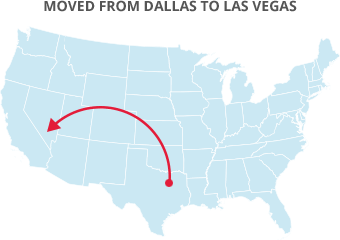

 In almost every home, the kitchen is the most complex space to pack. Many rooms, it is easy enough to bring in a bunch of boxes and place everything into them until it’s all packed up. The natural organization of the room makes it easy to sort the box contents. The kitchen, be that as it may, necessitates a unique procedure for every sort of item. No matter you have moved several times and have become an expert at wrapping glassware and putting paper between platters and serving bowls, there is still that one burning question: What should you do with the items still in your pantry and icebox?
In almost every home, the kitchen is the most complex space to pack. Many rooms, it is easy enough to bring in a bunch of boxes and place everything into them until it’s all packed up. The natural organization of the room makes it easy to sort the box contents. The kitchen, be that as it may, necessitates a unique procedure for every sort of item. No matter you have moved several times and have become an expert at wrapping glassware and putting paper between platters and serving bowls, there is still that one burning question: What should you do with the items still in your pantry and icebox?
It would be reckless to throw it out, it is often difficult to determine the best process to tackle these pantry leftovers.
Packing your pantry is only a fit idea part of the time. The most critical elements to think about are the distance from origin to destination, the safety of the food items, and the expiration dates. If you are only going a fairly short distance, you will be able to take everything that will go cleanly because there is very little lag or risk of spoilage. For long-distance trips, on the other hand, take a look at expiration dates and only move items with more than six months before the item expires. Non-glass spice jars and unopened containers can be packed but open packages and bags should be set aside. You might also want to weigh in your mind the cost of taking low-priced canned goods when added to a long-haul move.
Once you know what in your pantry you are going to take with you, begin preparing your boxes. Plastic boxes with snapping lids are wonderful for food transport because cans can be too cumbersome for cardboard and plastic will inhibit insect infestation. Keep your pantry box as orderly and snuggly packed as feasible to avert unearthing a mess when you arrive in Tulsa and Oklahoma City.
Place the items that weigh the most on the bottom and line up any squared-off or boxed items firmly against each other. Use sealable bags and Tupperware to seal open containers of food or ingredients. You might find it useful to use dividers made of plastic or a pieces of cardboard box to to make sure everything is upright and secure. Label the box as breakable so there is no confusion with your movers when they put it in the truck. If only nonperishable items are in your pantry box and all items are sealed, it should be safe to transport with the remainder of the boxes, but it’s certainly a good idea to double check with your moving company concerning what can and cannot be loaded in the moving van.
The first detail to remember is that things in the refrigerator can and will go bad if they are not managed accurately. Usually, refrigerator goods are only moved if the move involves fewer than 2 hours of driving. That said, it is understandable to not want to trash everything in your freezer and any remaining staples on moving day, but you'll need to plan on moving them in your car. Moving companies don’t manage food that can spoil.
To move your fridge things, first, be sure the fridge and freezer at the new location are turned on and working properly. Then, it will be safe to pack up your items from the fridge and freezer into a large ice chest that is about half-filled with ice. Drive the items over to the new house, load in the fridge, and relish in not having to go grocery shopping on moving day.
 Finally, there’s the question of how to handle any items you cannot or don't elect to move with you. There are places that would be joyous to take the extra food off your hands and get it passed out to those who need it. Food donation is one of the most important types of local charity, so no matter if you have a few packages of Rice-a-Roni or an entire pantry full of non-perishables, think about donating what you don’t need or can’t transport to your new home. A-1 Freeman Moving Group proudly takes part in Move for Hunger, a non-profit organization that works with moving companies to collect non-perishable food items, and deliver them to food banks across North America. Click here or on the picture above to find out more!
Finally, there’s the question of how to handle any items you cannot or don't elect to move with you. There are places that would be joyous to take the extra food off your hands and get it passed out to those who need it. Food donation is one of the most important types of local charity, so no matter if you have a few packages of Rice-a-Roni or an entire pantry full of non-perishables, think about donating what you don’t need or can’t transport to your new home. A-1 Freeman Moving Group proudly takes part in Move for Hunger, a non-profit organization that works with moving companies to collect non-perishable food items, and deliver them to food banks across North America. Click here or on the picture above to find out more!
Every person moving from home to home has something left in their pantry, even if you tried your hardest to use up leftovers. Acknowledging when to pack, what food can be packed, and when to think about donation is a crucial element of the moving process. With the right amount of organization, you can get to your new home in Tulsa and Oklahoma City with the maximum number of safely packed non-perishable foodstuffs and a peaceful feeling having given the extra to those who can benefit most from it.

